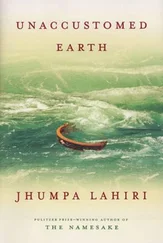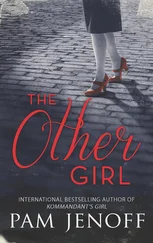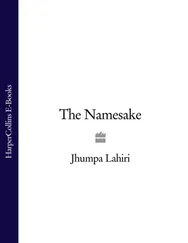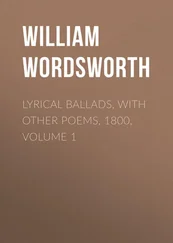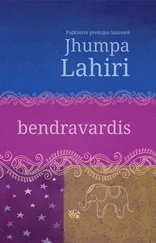Nearly twenty years after buying my first dictionary, I decide to move to Rome for an extended stay. Before leaving, I ask a friend of mine, who lived in Rome for many years, if an electronic Italian dictionary, like a cell phone app, would be useful, for looking up a word at any moment. 
He laughs. He says, “Soon you’ll be living inside an Italian dictionary.”
He’s right. Slowly, after a couple of months in Rome, I realize that I don’t check the dictionary so often. When I go out, it tends to stay in my purse, closed. As a result I start leaving it at home. I’m aware of a turning point. A sense of freedom and, at the same time, of loss. Of having grown up, at least a little.
Today I have many other larger, more substantial dictionaries on my desk. Two of them are monolingual, without a word of English. The cover of the small one seems a little faded by now, a little dirty. The pages are yellowed. Some are coming loose from the binding. 
It usually sits on the night table, so that I can easily look up an unknown word while I’m reading. This book allows me to read other books, to open the door of a new language. It accompanies me, even now, when I go on vacation, on trips. It has become a necessity. If, when I leave, I forget to take it with me, I feel slightly uneasy, as if I’d forgotten my toothbrush or a change of socks.
By now this small dictionary seems more like a brother than like a parent. And yet it’s still useful to me, it still guides me. It remains full of secrets. This little book will always be bigger than I am.
In 1994, my sister and I decide to give ourselves a trip to Italy as a present, and we choose Florence. I’m in Boston, studying Renaissance architecture: Brunelleschi’s Pazzi Chapel, the Laurentian Library of Michelangelo. We arrive in Florence at dusk, a few days before Christmas. My first walk is in the dark. I’m in an intimate, sober, joyful place. Shops decorated for the season. Narrow, crowded streets, some more like corridors than like streets. There are tourists like my sister and me, but not many. I see the people who have lived here forever. They walk quickly, indifferent to the buildings. They cross the squares without stopping.
I’ve come for a week, to see the buildings, to admire the squares, the churches. But from the start my relationship with Italy is as auditory as it is visual. Although there aren’t many cars, the city is humming. I’m aware of a sound that I like, of conversations, phrases, words that I hear wherever I go. As if the whole city were a theater in which a slightly restless audience is chatting before the show begins.
I hear the excitement of children wishing each other buon Natale —merry Christmas — on the street. I hear the tenderness with which, one morning at the hotel, the woman who cleans the room asks me: Avete dormito bene? Did you sleep well? When a man behind me on the sidewalk wants to pass, I hear the slight impatience with which he asks: Permesso? May I? 
I can’t answer. I’m not able to have a dialogue. I listen. What I hear, in the shops, in the restaurants, arouses an instantaneous, intense, paradoxical reaction. It’s as if Italian were already inside me and, at the same time, completely external. It doesn’t seem like a foreign language, although I know it is. It seems strangely familiar. I recognize something, in spite of the fact that I understand almost nothing.
What do I recognize? It’s beautiful, certainly, but beauty doesn’t enter into it. It seems like a language with which I have to have a relationship. It’s like a person met one day by chance, with whom I immediately feel a connection, of whom I feel fond. As if I had known it for years, even though there is still everything to discover. I would be unsatisfied, incomplete, if I didn’t learn it. I realize that there is a space inside me to welcome it.
I feel a connection and at the same time a detachment. A closeness and at the same time a distance. What I feel is something physical, inexplicable. It stirs an indiscreet, absurd longing. An exquisite tension. Love at first sight. 
I spend the week in Florence very near Dante’s house. One day, I visit the small church of Santa Margherita dei Cerchi, where Beatrice’s tomb is. The beloved, the poet’s inspiration, forever unattainable. An unfulfilled love marked by distance, by silence.
I don’t have a real need to know this language. I don’t live in Italy, I don’t have Italian friends. I have only the desire. Yet ultimately a desire is nothing but a crazy need. As in many passionate relationships, my infatuation will become a devotion, an obsession. There will always be something unbalanced, unrequited. I’m in love, but what I love remains indifferent. The language will never need me.
At the end of the week, having seen many palazzi, many frescoes, I return to America. I bring with me postcards, little gifts, souvenirs of the trip. And yet the clearest, most vivid memory is something immaterial. When I think of Italy, I hear certain words again, certain phrases. I miss them. And missing them pushes me, slowly, to learn the language. I am impelled by desire and, at the same time, hesitant, timid. I ask of Italian, with a slight impatience: Permesso ? May I? 
My relationship with Italian takes place in exile, in a state of separation.
Every language belongs to a specific place. It can migrate, it can spread. But usually it’s tied to a geographical territory, a country. Italian belongs mainly to Italy, and I live on another continent, where one does not readily encounter it.
I think of Dante, who waited nine years before speaking to Beatrice. I think of Ovid, exiled from Rome to a remote place. To a linguistic outpost, surrounded by alien sounds. 
I think of my mother, who writes poems in Bengali, in America. Almost fifty years after moving there, she can’t find a book written in her language.
In a sense I’m used to a kind of linguistic exile. My mother tongue, Bengali, is foreign in America. When you live in a country where your own language is considered foreign, you can feel a continuous sense of estrangement. You speak a secret, unknown language, lacking any correspondence to the environment. An absence that creates a distance within you.
In my case there is another distance, another schism. I don’t know Bengali perfectly. I don’t know how to read it, or even write it. I have an accent, I speak without authority, and so I’ve always perceived a disjunction between it and me. As a result I consider my mother tongue, paradoxically, a foreign language, too. 
As for Italian, the exile has a different aspect. Almost as soon as we met, Italian and I were separated. My yearning seems foolish. And yet I feel it.
How is it possible to feel exiled from a language that isn’t mine? That I don’t know? Maybe because I’m a writer who doesn’t belong completely to any language.
I buy a book. It’s called Teach Yourself Italian . An exhortatory title, full of hope and possibility. As if it were possible to learn on your own. 
Читать дальше






